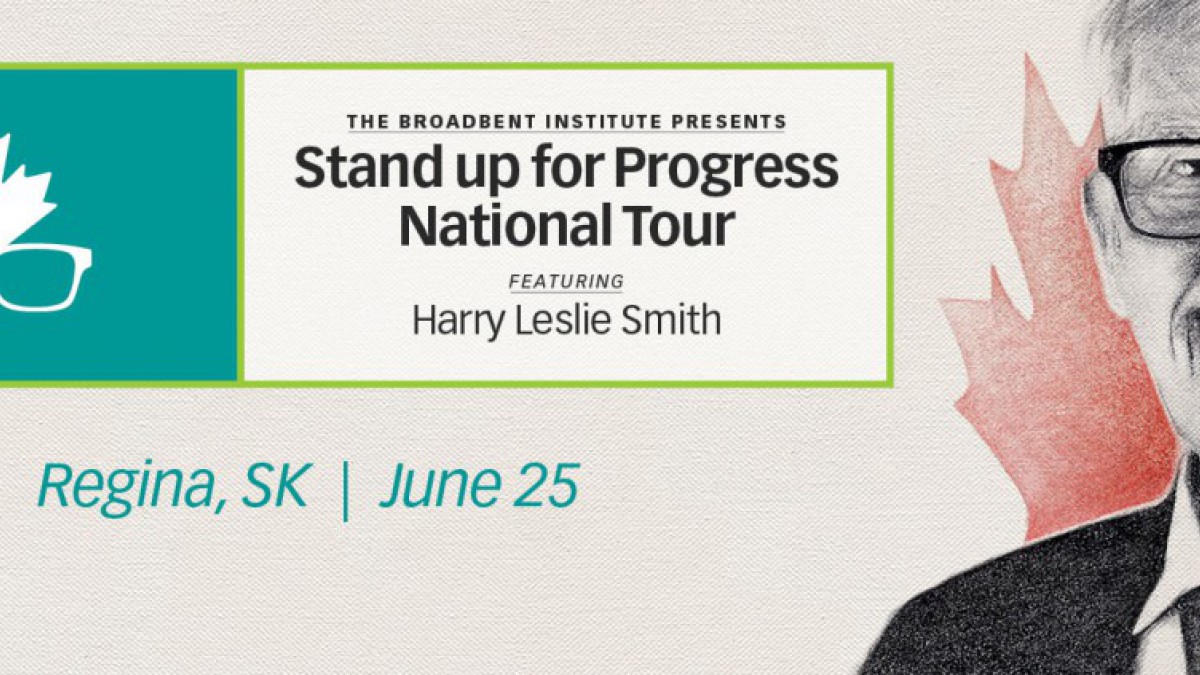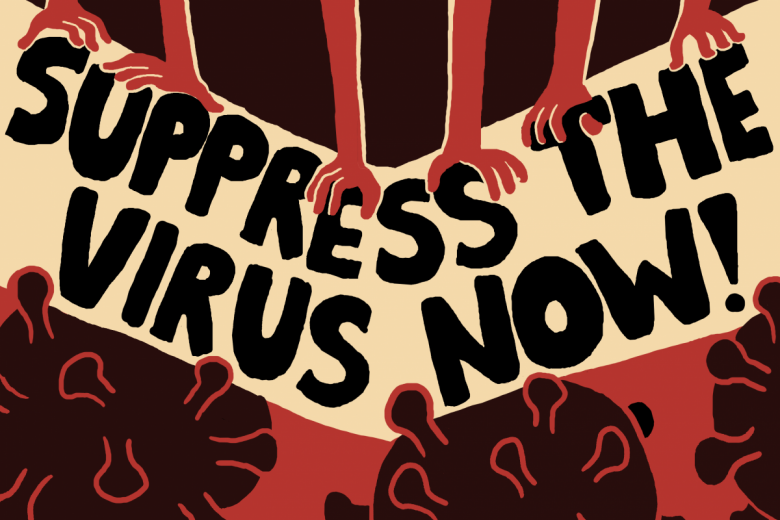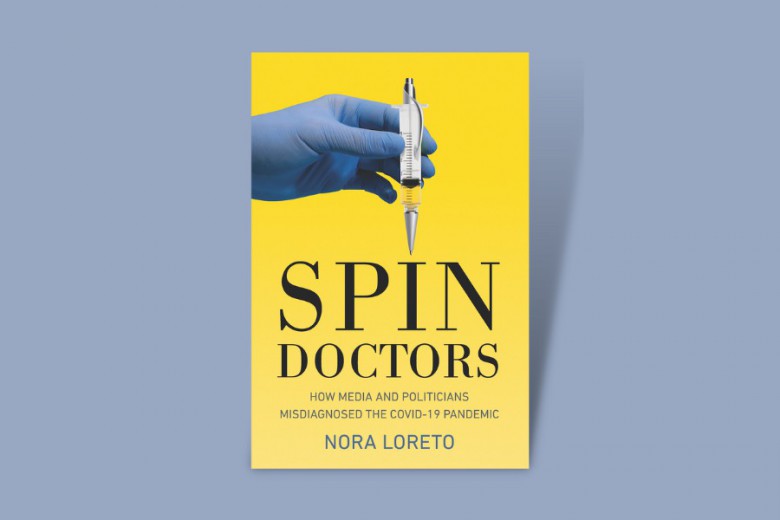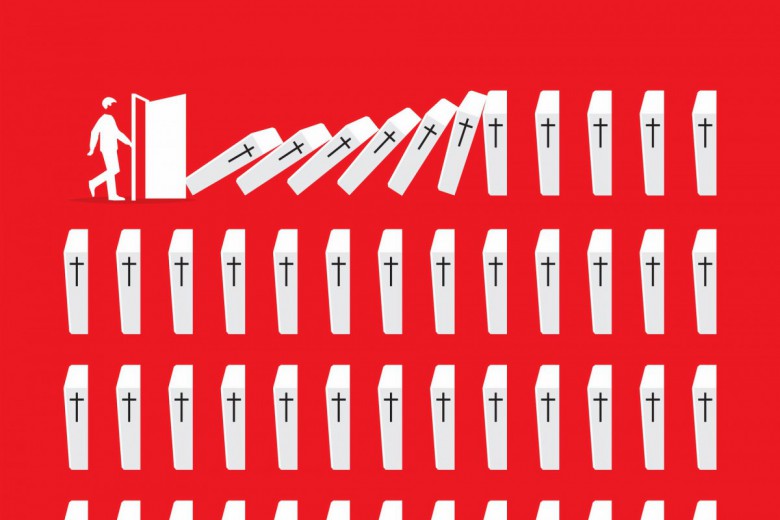Ninety-two-year-old veteran and activist Harry Leslie Smith is visiting Regina as part of the Broadbent Institute’s Stand Up for Progress Tour. Tickets are available here. In advance of Smith’s visit he spoke with Saskatoon physician Ryan Meili about his history and his vision for the future.
Ryan Meili: I am part of a generation that has never known anything but Medicare, but we’ve seen threats to it and we’ve tried to stand up against those, for example through Canadian Doctors for Medicare. I wonder what you would say to someone who takes for granted the universal publicly-funded system. What would you say to someone like that about life before the National Health Service (NHS) in the U.K.?
Harry Leslie Smith: Quite frankly, I would be aghast. I would have to tell them in terms of what life was actually like, you know, when there was no hospitalization. It was a bleak, uncivilized time and you can’t imagine then, hospitals, doctors, and medicine were for the privileged few because they were run for profit rather than as a vital state service that keeps a nation’s citizens and workers fit and healthy.
My memories stretch back almost a hundred years and if I close my eyes I can smell the poverty that oozed from the dusty tenement streets of my boyhood. I can remember extreme hunger and my parents’ undying love for me and my sisters and in my heart, I can still feel my mom and dad’s desperation as they tried to keep our family safe and healthy in the slum we called home. You know, I still remember, actually, while I played on the stoop in front of the doss-house that we lived in, the anguished cries from a window, several doors down from us, from a lady who had cancer and couldn’t afford morphine to ease her passage from life. That was the sort of thing that as a child didn’t register quite so much as it did when you got older and you thought of the injustice that prevailed because there was no health service. It was a really desperate time. There was no family safe, actually, from being affected by the disease which flourished around all our neighbourhoods.
No one in the community was safe from poor health, sickness and disease. In our home, TB came for my eldest sister Marion. Tuberculosis tortured my sister and left her an invalid that had to be restrained with ropes to her bed by my parents. They did everything in their power to keep Marion alive and comfortable, but they just didn’t have the money to get the best clinics for her and the best doctors, or get her the right medicine. Instead she wasted away before our eyes. My mother could no longer handle her care and they hired a horse and cart to take her to the workhouse infirmary where she died at the age of ten. As if that wasn’t enough pain and suffering for my parents, they didn’t have the money for her burial so she was dumped in a pauper’s pit like all other country’s indigent.
And it saddens me to think that even goes on today; the number of people that don’t have the money for proper burial and are just dumped in a pit; ten or twenty bodies in one grave. I still visit, when I go to England in Bradford, where my father and mother were buried. My father was buried in an indigent grave and my mother not, she managed to fight to the bitter end. But, it’s hard for anyone to realize today the privations and the suffering that people had to go through. I think that’s the reason when the war came, I joined the RAF in 1941 and in 1945. The whole of the forces had suffered greatly just as I had because we were of one mind, we were not going to tolerate it anymore.
There was an election in ’45 and we were solid in this belief that we would vote only for a government that promises that we would have free health care and that people’s rights would be protected. And it just reverberated around the world where all soldiers, sailors, and airmen were still stationed and the Labour government got in with quite a majority. It was such a wonderful sensation, and that was 1945. By 1948 the NHS was running through England. When I returned in 1948, I had a bout of bronchitis. I was broke as I had just come out of the air force. I went to the hospital where I saw a doctor for the first time in my life and he recommended antibiotics and the very fact that I would walk out of that hospital, free and clear, it was really a miracle.
Ryan: That is something amazing. And in your life, and so many lives, the NHS and Medicare here in Canada have made an enormous difference in access to health care when people get sick. Of course health care is what happens once people are already sick, and the things that determine whether or not we’ll be ill or well are factors like how much money people make, how far they go in school, what kind of work they have, what sort of housing they live in. Those play an extremely important role in health. Are there changes that you have seen recently that affect those social determinants and put our health at greater risk?
Harry: Well, you know, quite honestly, I could almost cry really. And what alarms me is people seem to be sitting back and they are not expressing any feeling that they are being treating badly. They seem to be accepting the fact that they have to be on zero hour contract jobs; they feel they can never make any more money so why should we care who’s in government, it’s just appalling. I really hope that in going around this coming year out west in all the provinces that I can get through to some of these people, that it is only they that can change their life, it’s not governments alone. They have to get up and fight for their rights.
In this day and age it’s frightening to think that food banks are so prevalent and people feel that this is sufficient to feed people properly. It isn’t. The maximum food people can get from the food bank, I would say, is if they are lucky they get 2-3 meals a week. What do they do for the rest of the time? The type of food they are eating is fast food or cheap food, and this of course encourages them to become overweight; their lack of hope has them sitting around too much. They don’t realize how much better it makes them feel to get up and feel that at least they’re fighting for something. Honestly, I do despair.
Ryan: You despair at times, but you’re also on this tour. You’re coming to Regina to share a stage with a group of younger people who are also involved in fights for social justice and a better Canada. Is there anything that’s giving you some hope?
Harry: I just returned from a trip to England where I was speaking for the Labour Party there. I found that I got the most enthusiasm from university students and the young people. I know one place I went to, in the North, after I finished speaking, 300 students went out and registered to vote in the election, which they had never done before. I think the young are looking for someone to lead them, someone to take them on. I’m not saying I am the person – I am too bloody old – but I am sure in our society someone like yourself could press upon the young people the necessity for them to work to change society for the betterment of all people, not just the people at the top who don’t need our help.
When I think of the size of our country and I think of all the people who have been to university and come out with great degrees, that there must be dozens and dozens of young people that have come out and now are dissatisfied with what they see. Unfortunately, too many of them feel that what they have to aim for is how much can they make with doing little for it. You’ve certainly given me a great deal to think about before I do arrive in Regina to see if I can energize youth to not just face the future but to aid it, to improve it, to shape it. Humanity cannot evolve when its leaders are only interested in profit and their most affluent constituents and ignore the rest of the people.
Harry Leslie Smith is a survivor of the Great Depression, a second world war RAF veteran, and an activist for the poor and for the preservation of social democracy. He has written several books about Britain during the depression, the war, and postwar austerity.



_780_520_90_s_c1.jpg)



